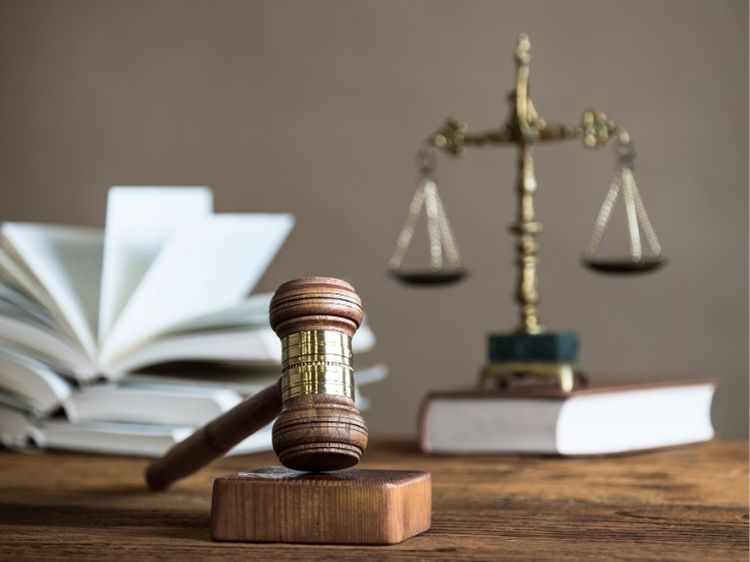Why Businesses Need a Commercial Collections Attorney
Running a business isn’t just about profits and growth—it’s also about managing risks. One of the trickiest challenges? Recovering unpaid debts. When clients or partners fail to honor their financial commitments, it puts a strain on cash flow and creates unnecessary headaches. That’s where a commercial collections attorney steps in, providing legal expertise and a strategic approach to debt recovery.
In this guide, we’ll explore the role of commercial collections attorneys, how they operate, and why hiring one might be the best move for your business.
What Is a Commercial Collections Attorney?
A commercial collections attorney specializes in helping businesses recover overdue payments from clients, vendors, or partners. Unlike collection agencies, these professionals are legal experts who use the law to enforce payment agreements.
Here’s what sets them apart:
- Legal Authority: They can file lawsuits, obtain judgments, and enforce payment through legal channels.
- Negotiation Skills: Attorneys often mediate between parties to reach settlements without going to court.
- Compliance Assurance: They ensure all debt recovery efforts align with federal and state laws, protecting your business from potential legal repercussions.
When Should You Hire a Commercial Collections Attorney?
Not all unpaid invoices require legal intervention, but there are clear signs when it’s time to call in the pros:
- Repeated Delays: When the debtor continually dodges payments despite multiple reminders.
- Large Amounts Owed: Significant sums often justify the cost of hiring an attorney.
- Breach of Contract: If the debtor violated a clear agreement, legal action may be necessary.
- Complex Disputes: Disagreements over terms or payments can benefit from legal expertise.
How Does a Commercial Collections Attorney Help?
A commercial collections attorney provides a multi-step approach to debt recovery, ensuring your interests are protected. Here’s how they work:
1. Initial Review and Demand Letters
The process begins with an in-depth review of the contract or payment agreement. Then, the attorney drafts a formal demand letter, outlining the debt and requesting immediate payment. This step alone often resolves many cases.
2. Negotiations
Attorneys are skilled negotiators, aiming to settle disputes amicably. They may suggest payment plans or partial settlements that satisfy both parties.
3. Legal Action
If negotiations fail, the attorney can file a lawsuit on your behalf. This includes preparing legal documents, representing you in court, and obtaining a judgment.
4. Post-Judgment Enforcement
Winning a judgment is only half the battle. Attorneys can help enforce it through methods like wage garnishment, liens, or property seizure.
Benefits of Hiring a Commercial Collections Attorney
If you’re on the fence about bringing an attorney into the picture, consider these benefits:
- Professionalism: Attorneys handle cases with discretion, protecting your reputation.
- Time-Saving: They manage the entire process, freeing you to focus on your business.
- Cost-Effective: Recovering overdue payments often offsets the attorney’s fees.
- Legal Protection: Attorneys ensure compliance with debt collection laws, reducing your risk of counterclaims.
Common Misconceptions About Commercial Collections Attorneys
- “They’re only for big corporations.”
Not true! Small and medium-sized businesses can also benefit from hiring a commercial collections attorney. - “It’s too expensive.”
While there are costs involved, many attorneys offer contingency-based fees, meaning they get paid only if you recover the debt. - “It’ll ruin client relationships.”
Attorneys often mediate disputes diplomatically, preserving valuable business relationships wherever possible.
FAQs About Commercial Collections Attorneys
Q: What’s the difference between a collections agency and a commercial collections attorney?
A: Collection agencies focus on contacting debtors to secure payment, but they lack legal authority. Attorneys, on the other hand, can take legal action and provide a broader range of solutions.
Q: How much does a commercial collections attorney charge?
A: Fees vary but may include hourly rates, flat fees, or contingency-based arrangements where payment is a percentage of the recovered debt.
Q: Can an attorney recover international debts?
A: Yes! Many commercial collections attorneys specialize in cross-border debt recovery, leveraging international laws and agreements.
Q: Will hiring an attorney damage my reputation?
A: Not necessarily. Attorneys often use tactful, professional methods that prioritize maintaining your business image.
Choosing the Right Commercial Collections Attorney
When selecting a commercial collections attorney, consider the following:
- Experience: Look for someone with a proven track record in debt recovery.
- Specialization: Ensure they focus on commercial cases, not personal debt collection.
- Fee Structure: Discuss fees upfront to avoid surprises.
- Communication: Choose an attorney who keeps you informed every step of the way.
Tips for Preventing Debt Issues in the Future
While a commercial collections attorney is invaluable when things go south, prevention is always better than cure. Here’s how you can protect your business:
- Thorough Vetting: Conduct credit checks on new clients.
- Clear Contracts: Spell out payment terms and penalties for late payments.
- Regular Follow-Ups: Don’t wait too long to chase overdue invoices.
- Legal Advice: Consult an attorney to draft airtight contracts.
Summary
A commercial collections attorney is more than just a legal expert—they’re a lifeline for businesses dealing with unpaid debts. From drafting demand letters to enforcing judgments, they provide a comprehensive solution tailored to your needs. If you’re tired of chasing payments or dealing with unresponsive clients, it’s time to consider professional help.
Remember, the goal isn’t just to recover what’s owed but to do so in a way that protects your business reputation and complies with the law.
Authoritative Links for Further Reading
- American Bar Association: https://www.americanbar.org
- National Association of Credit Management: https://www.nacm.org
- FindLaw on Commercial Debt Collection: https://www.findlaw.com

